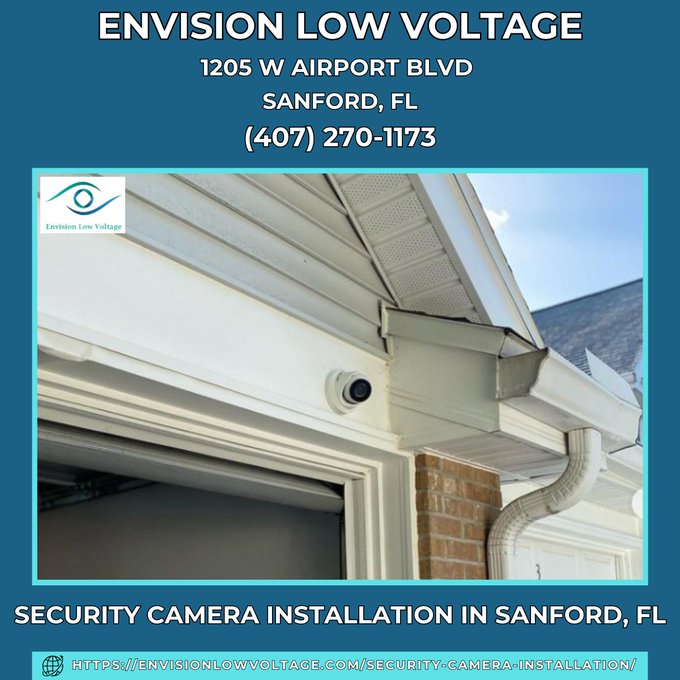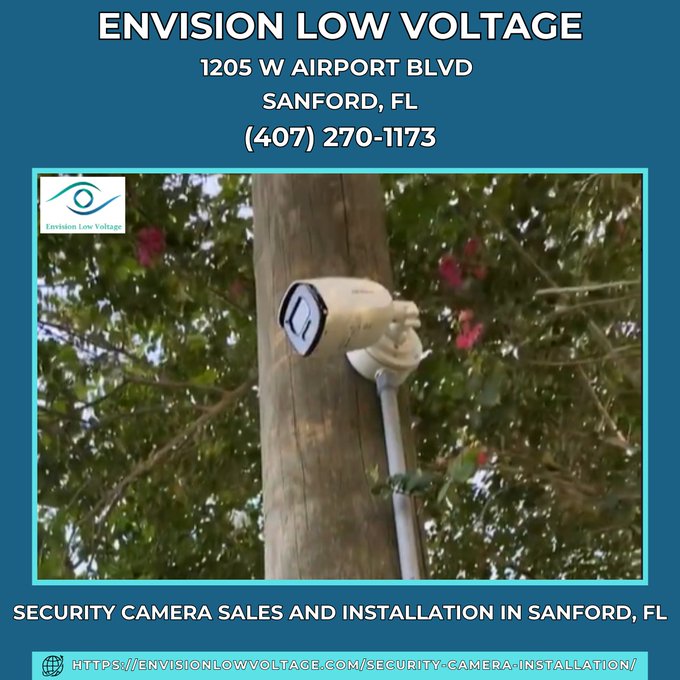Introduction
In an Envision Low Voltage owner era where safety and security are paramount, many homeowners are turning to technology to bolster their defenses. Home security cameras have become a staple in modern households, offering peace of mind and surveillance capabilities that were once the realm of professionals. However, as these devices gain popularity, so do concerns regarding their impact on home networks, particularly the question: Do home security cameras slow down your internet connection? This article aims to explore this topic in detail while also addressing various aspects surrounding the installation, cost, and overall benefits of security cameras.
Table of Contents
Understanding Home Security Cameras- 1.1 What Are Home Security Cameras? 1.2 Types of Home Security Cameras
- 3.1 Bandwidth Consumption by Security Cameras 3.2 Wi-Fi vs Wired Connections
- 4.1 How Much Should Security Camera Installation Cost? 4.2 What's the Going Rate for Installing Security Cameras?
- 5.1 Can I Install Security Cameras Myself? 5.2 Do You Need an Electrician to Install Security Cameras?
- 6.1 Is it Worth Installing Home Security Cameras? 6.2 Do Security Cameras Add Value to Home?
- 7.1 Is It Better to Have Wired or Wireless Security Cameras?
- 8.1 Do Security Cameras Lower Home Insurance?
- 9.1 How Much Does ADT Security Camera Cost Per Month?
- 10.1 How Long Does it Take to Install a Security Camera?
- 11.1 Do All Home Security Cameras Have Monthly Fees? 11.2 Are Expensive Security Cameras Worth It?
Understanding Home Security Cameras
What Are Home Security Cameras?
Home security cameras serve as a visual deterrent against crime while simultaneously providing real-time monitoring capabilities for property owners and law enforcement alike.
Types of Home Security Cameras
There are various types of home security cameras available today:
- Indoor Cameras: Great for monitoring rooms and hallways. Outdoor Cameras: Designed for exterior use, often weatherproof. Wireless vs Wired: Each has pros and cons regarding installation and connectivity. PTZ (Pan-Tilt-Zoom): Allow remote adjustment for broader coverage.
Do Home Security Cameras Slow Down Your Internet Connection?
When you consider adding security cameras to your network, one crucial concern arises: do they slow down your internet connection? The answer isn't black and white; it largely depends on several factors including camera type, number, video resolution, and your existing internet bandwidth.
Factors Influencing Internet Speed
- Bandwidth: Every device connected to your network consumes a portion of its bandwidth. Camera Resolution: Higher quality (like HD or 4K) consumes more data. Network Type: Wired connections generally offer better stability than wireless.
Thus, if you have a robust CCTV camera installation Envision Low Voltage internet plan with ample bandwidth (e.g., fiber-optic services), adding multiple high-resolution cameras may have little to no noticeable effect on speed.
The Impact of Data Usage on Internet Speed
Bandwidth Consumption by Security Cameras
The amount of data consumed can vary significantly based on settings such as:
- Frame rates (how many frames per second) Resolution (720p vs 1080p vs 4K)
A single HD camera streaming continuously may consume about 2 Mbps of bandwidth while a single 4K camera might use up to 8 Mbps or more.
Wi-Fi vs Wired Connections
Wired connections typically provide faster speeds compared to Wi-Fi due to reduced interference from walls or other electronics:
- If using Wi-Fi for multiple high-resolution cameras, you might experience lag during peak usage times. A wired setup can alleviate concerns over slowdowns since it doesn't share bandwidth with other devices as much.
Cost Considerations for Installing Security Cameras
How Much Should Security Camera Installation Cost?
The cost varies depending on several factors like equipment type, labor costs in your area, and whether you're opting for DIY installation or hiring professionals.
| Type | Estimated Cost | |------|----------------| | DIY Setup | $100-$300 | | Professional Installation | $500-$1500 | | Monthly Monitoring Fee | $15-$50 |
What's the Going Rate for Installing Security Cameras?
Professional installation costs can range widely based on complexity:
- Basic setups (one or two cameras): $100-$200 Advanced systems with multiple cameras: $500-$1500+
Always get quotes from different installers before making a decision!
DIY or Professional Installation?
Can I Install Security Cameras Myself?
Yes! Many brands offer user-friendly setups that come with comprehensive instructions:
- Choose areas with optimal visibility. Ensure proper mounting equipment is included.
However, not all systems are equally simple; some may require technical expertise.
Do You Need an Electrician to Install Security Cameras?
Generally speaking:
- For wireless systems: No electrician is needed unless running power lines.
While professional help may ensure optimal placement and functionality—especially if wiring is involved—it's not always necessary.
Evaluating the Value of Home Security Systems
Is it Worth Installing Home Security Cameras?
Absolutely! Benefits include:
- Deter potential break-ins Provide evidence in case of theft Peace of mind knowing you're monitoring your property
Investing in home security is often seen as essential rather than optional in today’s world.
Do Security Cameras Add Value to Home?
Yes! Homes equipped with security systems often attract buyers looking for added protection features:
Having an installed system can justify higher sale prices!
Choosing Between Wired and Wireless Security Systems
Is It Better to Have Wired or Wireless Security Cameras?
Both options have unique advantages; here’s how they stack up:
| Feature | Wired | Wireless | |---------------------|---------------------------|--------------------------| | Reliability | High | Moderate | | Setup Complexity | More complicated | Easier | | Range | Limited by cable length | Limited by signal strength|
Ultimately, choose what fits best within your home environment!
Insurance Implications of Having Security Cameras
Do Security Cameras Lower Home Insurance?
Many insurance companies offer discounts for homeowners who install security systems:
Check with your provider; savings could offset installation costs!
Operational Costs Associated with Surveillance Systems
How Much Does ADT's Monthly Monitoring Cost?
ADT offers packages ranging from $36–$60 monthly depending on service levels like video monitoring:
Consider this when budgeting for a comprehensive security solution!
Installation Timeframes for Various Systems
How Long Does it Take to Install a Single Camera?
Typically around one hour per camera if done professionally—longer if you opt for DIY due to troubleshooting issues that may arise along the way.
For multiple camera setups, expect additional time proportionate to complexity!
Common Questions About Home Surveillance
Do All Home Security Cameras Have Monthly Fees?
Not all do! Many standalone models allow users access without ongoing fees—however cloud storage options usually incur charges based on usage plans.
Are Expensive Security Cameras Worth It?
Higher-priced models often come packed with features like enhanced resolution or advanced motion detection that cheaper alternatives lack—evaluate according to your specific needs!
Conclusion
In summary, the question "Do home security cameras slow down your internet connection?" largely hinges on individual circumstances such as bandwidth capacity and number/quality of devices connected at once—but rest assured that thoughtful planning can mitigate adverse effects significantly!
As we navigate our increasingly digital lives laden with safety concerns—from securing our homes against thefts through effective surveillance measures—it becomes clear how intertwined technology will remain within our personal spaces moving forward! Investing wisely into these advancements not only bolsters safety but also ensures lasting value in both our properties and peace-of-mind daily experiences alike!

